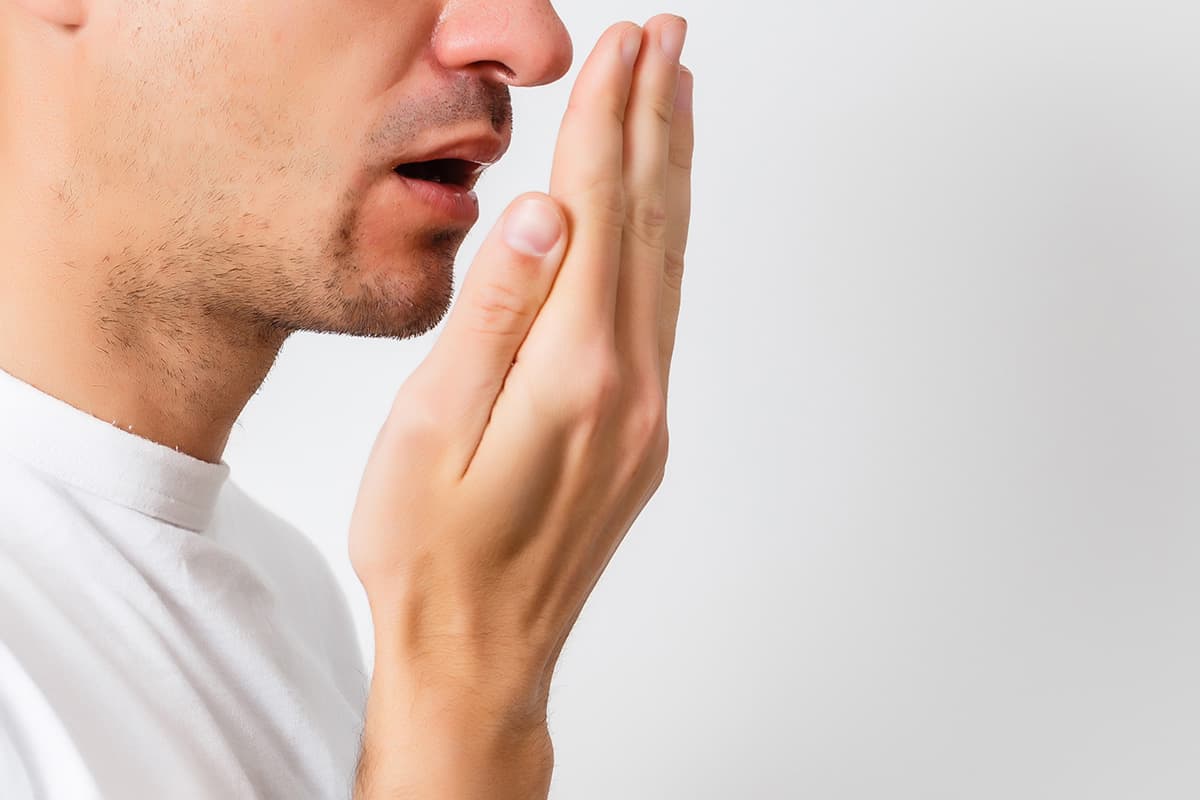Halitosis affects roughly one out of every four people. Perhaps surprising for many, this common problem trails only tooth decay and gum disease for the most common reasons why people seek oral healthcare.
Halitosis is the medical term that describes the condition in which you have an unpleasant smell coming from your mouth. In other words, halitosis means to have bad breath. Having halitosis can take place occasionally or can be a chronic condition.
What Causes Halitosis and How Can You Prevent It?
There are many possible causes of halitosis. The most common causes include:
- Mouth, nasal, or throat infections
- Gum disease
- Dental cavities
- Dry mouth
- Bacteria in the mouth
- Oral cancer
- Smoking or tobacco use
Other reasons could be the culprit of having bad breath. For example, chronic conditions such as gastric reflux, liver disease, kidney disease, or diabetes can also cause bad breath.
There is good news for anyone suffering from bad breath. You can prevent this problem. Good oral healthcare and some valuable tips can often make the difference between feeling confident to speak to others and embarrassed to open your mouth.
Brushing and Flossing
We all know brushing your teeth features challenges in getting to those hard-to-reach places. But did you know that brushing your teeth only cleans about 60% of the surface of your teeth? This is why flossing can be so important, as it decreases the accumulation of food particles and plaque from between the teeth.
Therefore, it’s recommended to brush twice a day and floss once a day at the least.
Importantly, brush your tongue to remove bacteria from your tongue’s surface. Last but not least, avoid brushing too hard as doing so can lead to tooth decay.
Keep Yourself Hydrated
Since one of the causes of bad breath is dry mouth, try to avoid keeping your mouth dry. Notably, sleeping is one of the prime causes your mouth to become dry. This is why your mouth typically smells worse when you wake up in the morning.
To avoid drying out of your mouth by drinking plenty of water daily.
Use Zinc
Using zinc salts can effectively counteract bad breath. Zinc salts are often present in chewing gums and mouthwashes. Regularly rinsing your mouth with a zinc-containing solution can effectively reduce bad breath.
You can use a chewing gum that contains zinc salts. Alternatively, dietary zinc supplements readily available over the counter can also work.
Using the Right Mouthwash
You can fight halitosis by using the right type of mouthwash. You will find various kinds of mouthwash featuring different ingredients over the counter. However, if you don’t know which one to choose, you can make your own homemade mouthwash to fight bad breath.
You can make vinegar mouthwash by taking one cup of water and adding two tablespoons of apple cider or white vinegar. Spit it out after gargling for a minimum of 30 seconds.
Are you wondering why a vinegar mouthwash is effective for overcoming halitosis? Vinegar is rich in a natural acid called acetic acid, and an acidic environment inhibits bacterial growth. For that reason, a vinegar mouthwash can be extremely effective in reducing bacteria growth.
Alternatively, you can make mouthwash with baking soda by taking a cup of warm water and adding two teaspoons of baking soda to it. Do a 30-second gargle and then spit it out.
Baking soda has the ability to kill bacteria in the mouth as well. Using a toothpaste that contains baking soda can also be an effective weapon against bad breath.
Visit Splendid Dental Atascocita for Help with Halitosis
Although you can treat bad breath with these lifestyle modifications and home remedies, you might need to visit your dentist in serious cases. This is because bad breath can indicate serious health conditions, including kidney failure, diabetes, or an infection. If your symptoms persist, consult with the dental experts at Splendid Dental Atascocita at 713-244-7790 for their expert advice.







